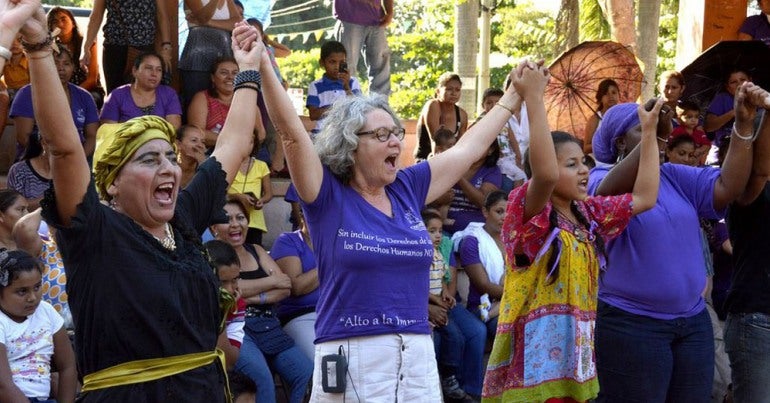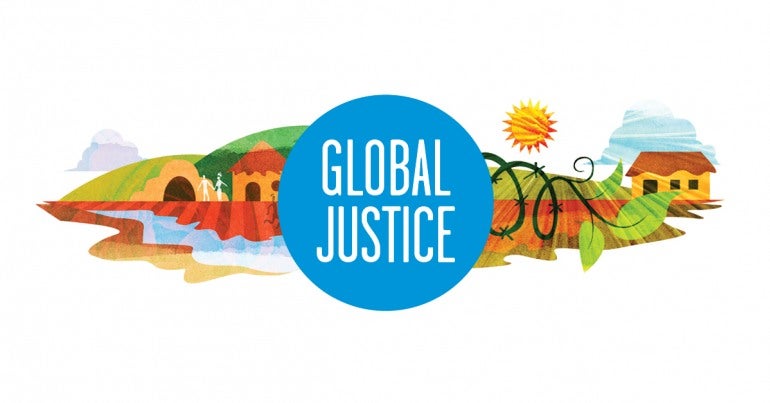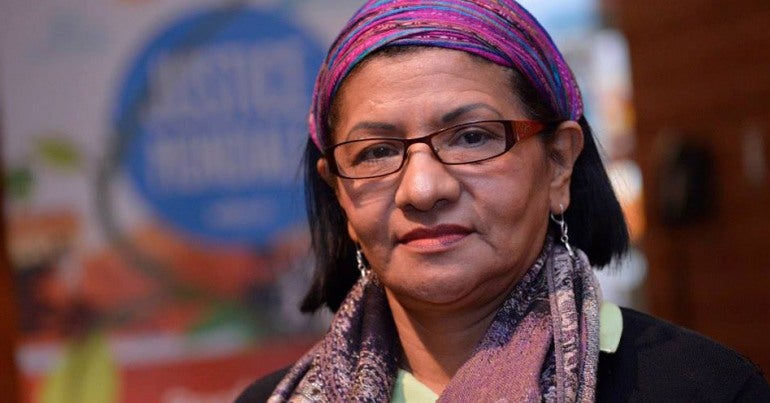
BILL C-51
CUPE has joined a growing list of Canadians who think Bill C-51 goes too far. The union has grave concerns over the impact the proposed changes to the Criminal Code, law enforcement, and the expansion of the government’s intelligence gathering powers will have on our right to due process, free speech and privacy protection.
Four former prime ministers are concerned with the bill’s broad measures; the Privacy Commissioner — an officer of Parliament — lacks the power and resources to provide oversight of C-51; and Canada’s reputation is being tarnished as international media report the Conservative bill could open the door to human rights abuses.
The provisions of Bill C-51 are unfortunately not unique in the world. In the wake of 9/11, the so called “war on terror” has been used as a pretext for legislation to justify the detention of leaders and activists from indigenous, farming and peasant communities, or environmental, human rights, church based and trade union movements.
CUPE and other groups are concerned that threats to ‘national security’ could include trade unionists who engage in strike action, indigenous leaders who act to protect their right to self determination, environmental activists working to protect our land and resources, racialized communities who expose racial profiling and police violence, migrant workers who try to gain access to immigration status and poor communities who express their right to access public services and economic justice.
All of us may be vulnerable to unjust surveillance and criminalization in the proposed Bill C-51. CUPE and the NDP opposition have been actively opposing the bill with letters and petitions to Members of Parliament, rallies, door to door canvassing and other activities to oppose the bill.
Bill C-51 appears to be less about fighting actual terrorism and more about creating a culture of fear. Our opposition to this bill requires us to strengthen our communities and our relationships of solidarity with workers and our allies around the world.
In early spring the House of Commons adopted Bill C-51.
CUPE continues to challenge the free trade agenda


The Trade in Services Agreement (TISA) is a dramatic threat to public services in Canada and around the world. TISA is a massive trade deal that aims to encourage privatization of public health care, broadcasting, water, transport and other services. As with most trade and investment agreements, TISA treats public services as commodities to be bought and sold in an attempt to favour the profits of the richest corporations and countries in the world over those who have the greatest needs.
The deal if passed could make it impossible for future governments to restore public services to public control, even in cases where private service delivery has failed. It would also restrict a government’s ability to regulate key sectors including financial, energy, telecommunications and cross-border data flows.
The proposed agreement is the direct result of systematic advocacy by transnational corporations in banking, energy, insurance, telecommunications, transportation, and water sectors. CUPE continues to challenge the free trade agenda with Public Service International (PSI), the Trade Justice Network, and Common Frontiers.
Negotiations for TISA began in 2013 and are ongoing. The proponents of TISA also known as the “Really Good Friends of Services” currently include Australia, Canada, Chile, Colombia, Costa Rica, Hong Kong, Iceland, Israel, Japan, Mexico, New Zealand, Norway, Panama, Pakistan, Peru, South Korea, Switzerland, Taiwan, Turkey, the United States, and the 28 member states of the European Union.
SUSTAINABLE DEVELOPMENT GOALS
As the UN millennium development goals (MDG) expire at the end of 2015, the international community is gearing up to agree to a new set of global targets and goals to end poverty and realize global justice. The Post 2015 Development Framework is now being negotiated by UN member states, civil society and the private sector and a new set of goals and targets, referred to as the Sustainable Development Goals (SDG), have now been identified.
The millennium development goals are eight international development goals that were established at a UN Summit in 2000. The goals are intended to support developing countries to achieve eradication of poverty and extreme hunger, universal primary education, gender equality and women’s empowerment, reduction in child mortality, improve maternal health, combat HIV/AIDS, environmental sustainability, and the development of global partnerships for development.
Civil society organizations have argued, the good intentions of the sustainable development goals will not be achieved unless the new goals aim to redistribute wealth, decrease the power of transnational corporations, stop the privatization of public services, end the proliferation of trade and investment agreements, or regulate financial institutions.
The trade union movement and civil society groups are concerned about the prominent role given to the private sector in these negotiations. While these new development goals are being negotiated there is a parallel process underway to determine how they will be implemented and financed. It is in the latter process where activists are questioning whether the Post 2015 Development Framework is about expanding and strengthening the millennium development goals or whether it is an agenda aimed at the expansion of corporate power in the guise of promoting sustainability and addressing the needs of the poor.
As an affiliate of the CLC, a member of the Canadian Council for International Cooperation and in consultation with the ITUC and PSI, CUPE is tracking and engaging the Canadian government in these negotiations and supporting a people’s agenda that includes rights recognition, justice, decent work, social protection, and public services.
IMMIGRATION NOT DEPORTATION
On April 1, 2015, the majority of low-waged migrant workers employed under the Temporary Foreign Workers Program, who have worked in Canada for more than four years, were barred from continuing to work in Canada and forced to leave. Those forced to leave were also barred from returning to Canada as workers for another four years (referred to as the 4 & 4 rule). Workers who chose to stay became undocumented workers, forced “underground” and into the informal economy.
CUPE’s National Executive Board passed a resolution in solidarity with migrant workers who were affected by reforms to the Temporary Foreign Workers Program and Live-In Caregiver Program in 2014. We endorsed the campaign of migrant advocates in advance of the April 1 deadline and echo their demands to end the 4 & 4 rule and grant migrant workers permanent residency with access to social benefits and entitlements.
Globally, there are over 200 million migrant workers who have left their homes and families in search of work in others countries. Every year they send $400 billion (USD) back to their home countries. Forced to leave because of the conditions of chronic underemployment and unemployment, migrant workers have paid tens of thousands of dollars to come to Canada to work in minimum wage jobs to provide a better life for their families.
Many countries are implementing labour export policies to secure a constant flow of foreign currency and to prop up failing economies. Receiving countries such as Canada have established temporary foreign worker programs to take advantage of growing poverty worldwide in the interest of employers here.
The 4 & 4 rule, imposed by Citizenship and Immigration Canada and enforced by Canadian Border Services Agency, are tearing apart families, friends and communities across the country.
Canada needs a robust immigration program where foreign workers have access to permanent residency upon arrival. All workers in this country need access to skills training and apprenticeships, a living wage, income security and access to public services.




